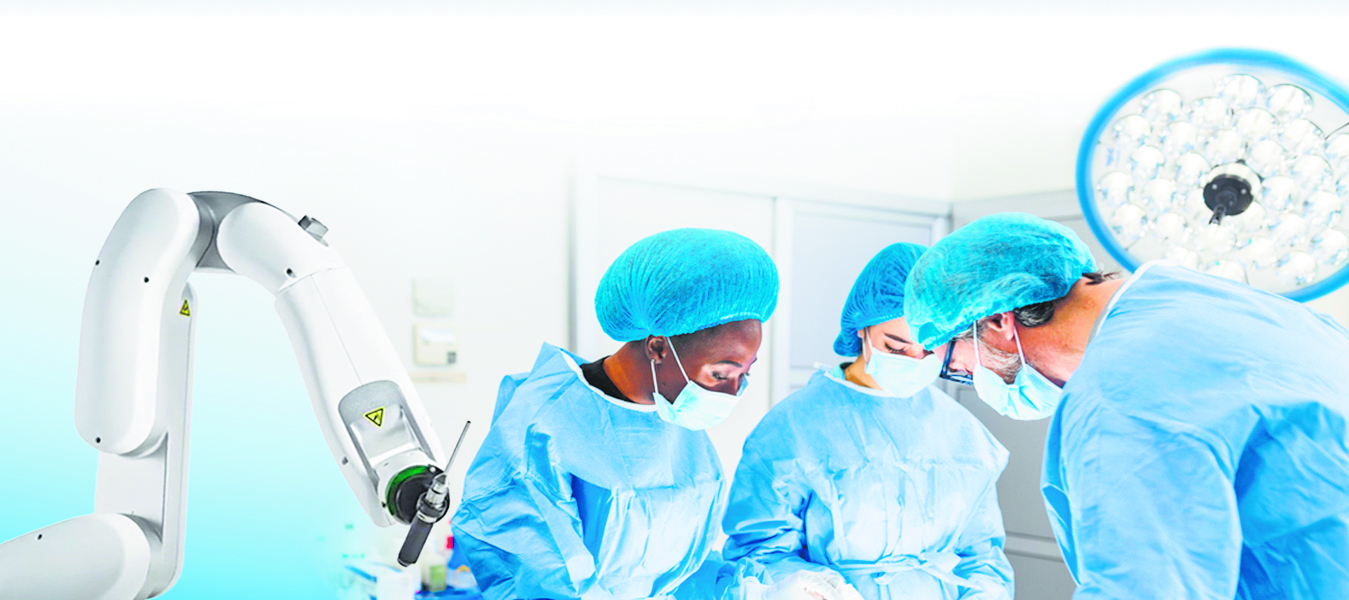
The healthcare industry has seen a remarkable shift towards advancements in recent years. With the involvement of artificial intelligence and robotics, medical procedures have become safer, more precise and minimally invasive. From routine procedures to complex surgeries, AI and robotics have made significant strides in improving patient outcomes and enhancing the capabilities of healthcare professionals.
Increasing Impact of AI and Robotics in Surgeries
In the evolving modern times, artificial intelligence has been rapidly growing in the medical sector and is efficiently helping surgeons and medical professionals in some of the following ways:
- Preoperative Planning: The advanced AI-powered algorithms can help analyze a patient’s medical history, imaging data, and other relevant information that can help in planning a surgical procedure. This enables the surgeon to make well-informed decisions about the surgery, leading to better outcomes.
- Analyzation of Images: AI can process and analyze medical images, such as MRI or CT scans, with remarkable accuracy. For example, if an individual gets a sports injury, AI can efficiently identify the intensity of the damage that has been caused in joints, muscles or bones. Thereby making the diagnosis and the treatment of the injury accurate.
- Reduced recovery time: The assistance of robotics in medical situations like knee injury often results in smaller incisions and less tissue trauma. This leads to a faster recovery and reduced postoperative pain, which is essential for athletes looking to get back to their sport.
- Robot-Assisted Surgery: Surgical robots are the talk of the town in today’s evolving times and with the control of a professional and skilled surgeon on the robots, surgeons can execute complicated procedures with unmatched precision. These robots provide greater dexterity and can access hard-to-reach areas, which is especially beneficial in orthopedic surgeries like knee surgery.
- Enhanced Precision: Robots are capable of assisting in performing high-precision procedures, such as knee replacement, with minimal damage to surrounding tissues. This precision is vital in preserving the patient’s overall joint health.
- Customization: AI algorithms can create 3D models of the patient’s knee, enabling surgeons to tailor the surgery to the patient’s unique anatomy. This customization can lead to quicker recovery and better long-term outcomes.
Impact of AI and Robotics in Diagnosing Sports Injury
Over time AI is known to have shown accurate diagnosis results in sports-related injuries. Below you will find the ways AI and robotics have been reflecting their accurate diagnosis of sports-related injuries:
- Speed and Accuracy: AI algorithms can quickly analyze a large dataset of medical images, making it possible to diagnose sports injuries faster and more accurately. This is beneficial for athletes who need rapid treatment to return to their sport.
- Predictive Analysis: AI can help predict potential injuries by analyzing an athlete’s biomechanics and performance data. This allows for preventive measures to reduce the risk of injuries, which is especially important in high-impact sports.
- Rehabilitation Assistance: AI-powered tools can create personalized rehabilitation plans based on an athlete’s injury and recovery progress. This ensures optimal recovery and reduces the risk of re-injury.
So, this is how AI and Robotics are impacting the medical field. What makes the role of AI and robotics more important is its ability to offer improved precision, fast recovery time and treatments that are more accurate and personalized. As AI and robotics keep revolutionizing, it promise a bright future that is more accurate and efficient for healthcare and surgical procedures. The potential that AI shows in this field is remarkable as it holds a promise for better healthcare outcomes for the world.
The author is the MS. MCh Orth Specialized in Joint Replacement, Arthroscopy, and Sports Injury from AmiCare Hospital.
















